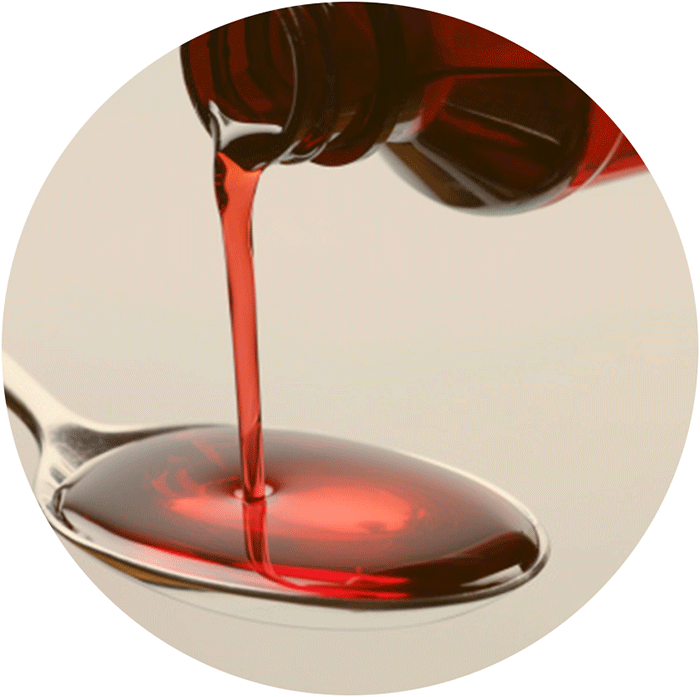
Table of Contents
When you’re feeling under the weather, especially with a cough, choosing the right treatment can be overwhelming. With so many options available, how do you know which cough syrup is best for your specific symptoms? Understanding the types of coughs and the ingredients in cough syrup can help you select the most effective product to relieve your discomfort. Here’s a guide to help you make an informed choice.
Identify Your Type of Cough
Before reaching for a cough syrup, it’s important to identify the type of cough you’re experiencing. Coughs are typically classified into two categories: dry (non-productive) and wet (productive).
- Dry Cough: A dry cough is usually caused by irritation in the throat and doesn’t produce mucus. It’s common in conditions like allergies, asthma, or viral infections. A dry, tickling cough can be painful and persistent.
- Wet Cough: A wet or productive cough is characterized by mucus or phlegm. It’s often a sign of an infection like the common cold, bronchitis, or pneumonia. The body produces mucus to trap and expel germs, and coughing helps clear the airways.
Choose the Right Ingredients
Different cough syrups contain various active ingredients, each targeting specific symptoms. Here’s a breakdown of the most common types:
- Antitussives: These are used for dry coughs and work by suppressing the cough reflex in the brain. The most common antitussive is dextromethorphan, which helps calm a persistent dry cough.
- Expectorants: For a wet cough, an expectorant can help thin and loosen mucus, making it easier to expel. The most common expectorant is guaifenesin, which works by clearing mucus from the airways and making coughs more productive.
- Combination Syrups: Many cough syrups contain a combination of antitussives and expectorants to address both dry and wet coughs. Some also include antihistamines (for allergic reactions) or decongestants (to relieve nasal congestion), depending on the symptoms you’re experiencing.
Consider Other Symptoms
Sometimes a cough is accompanied by additional symptoms such as congestion, sore throat, or fever. If you’re dealing with multiple symptoms, it might be worth choosing a cough syrup that also targets those issues. Here are some common ingredients to look out for:
- For sore throat relief: Look for syrups that contain menthol or benzocaine to soothe the throat and reduce irritation.
- For congestion: Phenylephrine or pseudoephedrine are common decongestants found in combination cough syrups to relieve nasal stuffiness.
- For fever or body aches: Some cough syrups combine acetaminophen or ibuprofen to help lower fever and reduce discomfort.
Age and Health Considerations
When choosing a cough syrup, age is an important factor. Some syrups are formulated specifically for children or adults. Always check the label to ensure the syrup is suitable for your age group.
- For children: Choose cough syrups that are labeled safe for their age range. Many pediatric formulations contain lower doses of active ingredients and avoid substances that might be harmful to young children, like alcohol.
- For adults: If you have underlying health conditions such as high blood pressure or diabetes, you should avoid cough syrups that contain ingredients like pseudoephedrine (a decongestant) or high doses of sugar or alcohol.
Read the Label and Warnings
Always read the label before using any cough syrup. Ensure the product doesn’t interact with any medications you’re currently taking. Be aware of side effects like drowsiness, dizziness, or stomach upset. If you’re taking multiple medications, consult a healthcare provider before using a cough syrup to avoid potential interactions.
Natural Cough Syrups
For those who prefer more natural remedies, there are herbal and homeopathic cough syrups available. These often contain ingredients like honey, ginger, licorice root, and eucalyptus, which can help soothe the throat and reduce coughing. While these may be effective for mild symptoms, it’s always best to consult with a healthcare provider if your cough persists.
When to See a Doctor
If your cough lasts more than a week, is accompanied by a fever, produces thick green or yellow mucus, or is causing difficulty breathing, it’s important to seek medical advice. A persistent or severe cough may indicate a more serious condition, like pneumonia, bronchitis, or even COVID-19.
Conclusion
Choosing the right cough syrup involves understanding your symptoms and selecting a product that targets your specific needs. Whether you’re dealing with a dry or wet cough, be sure to read labels carefully, consider your overall health, and consult with a healthcare professional if necessary. With the right treatment, you can find relief and feel better faster.
